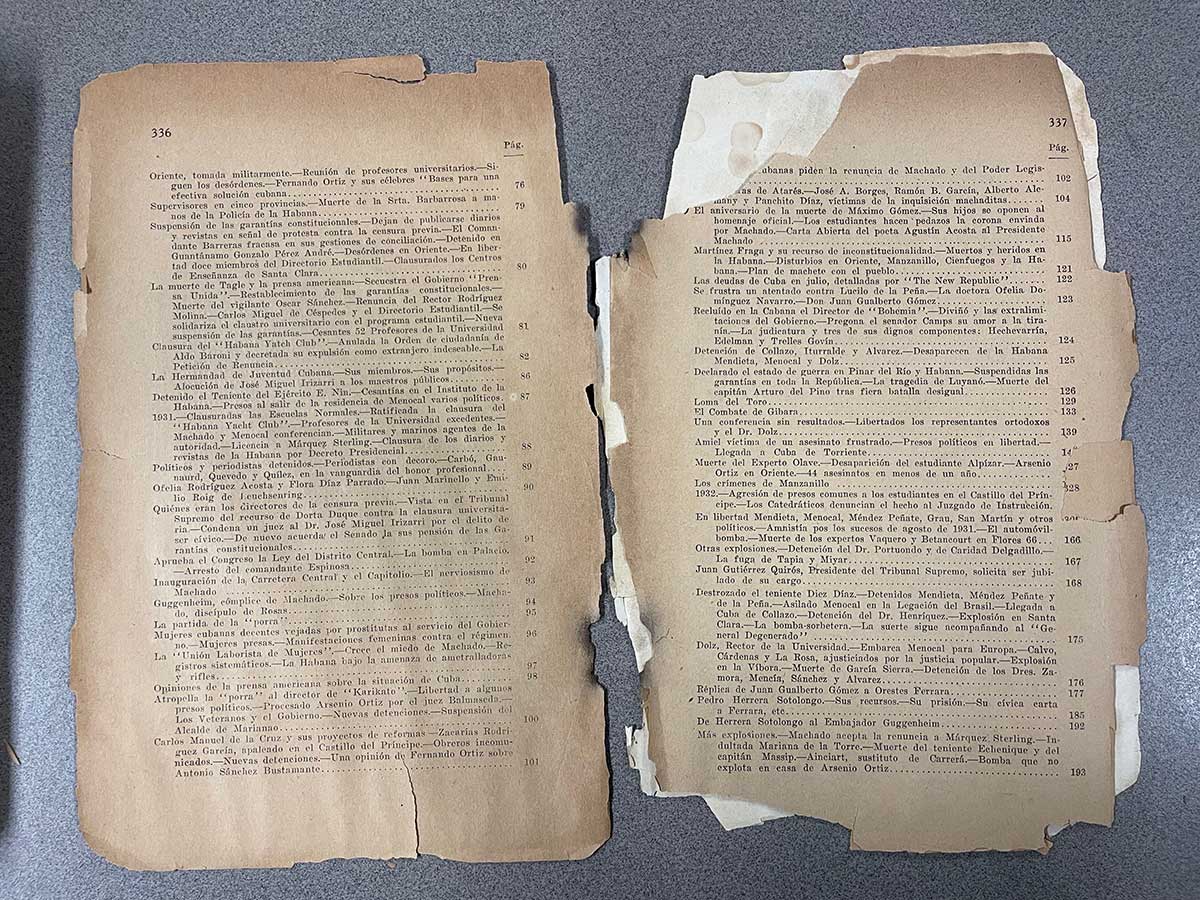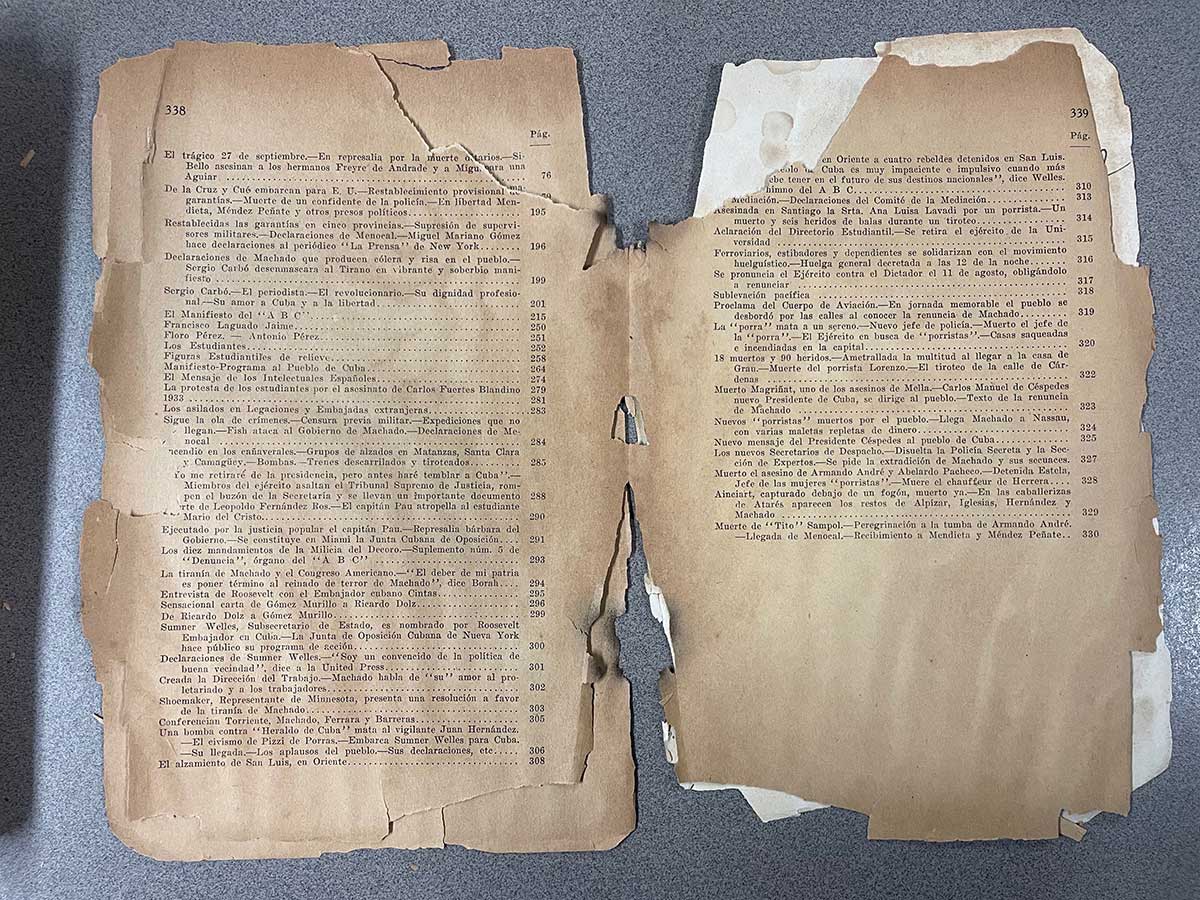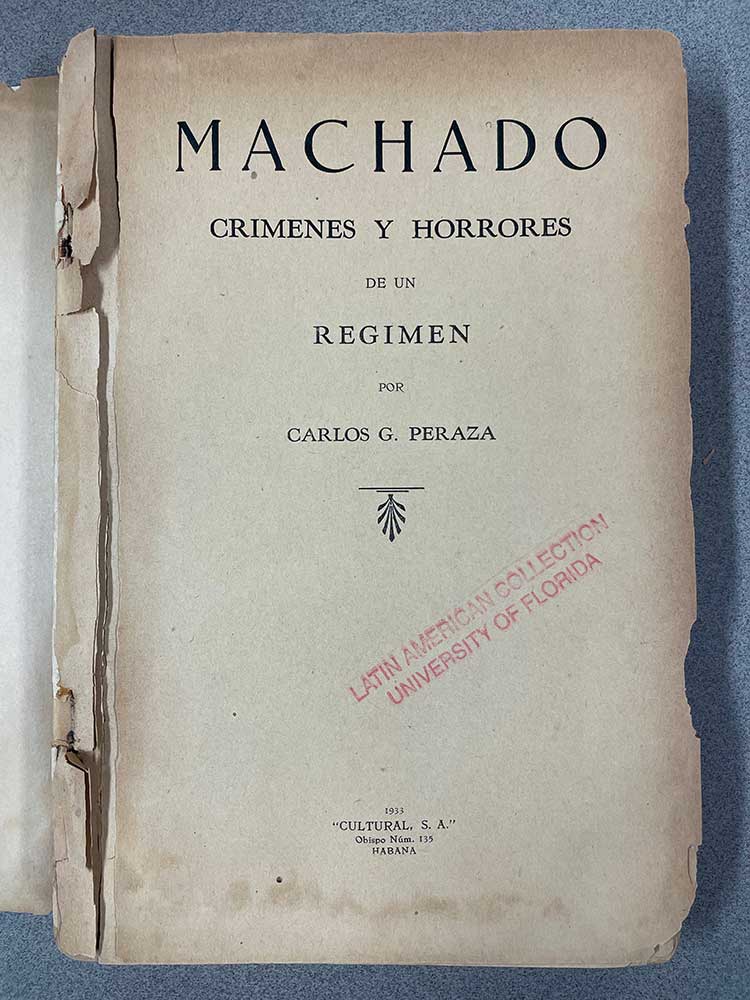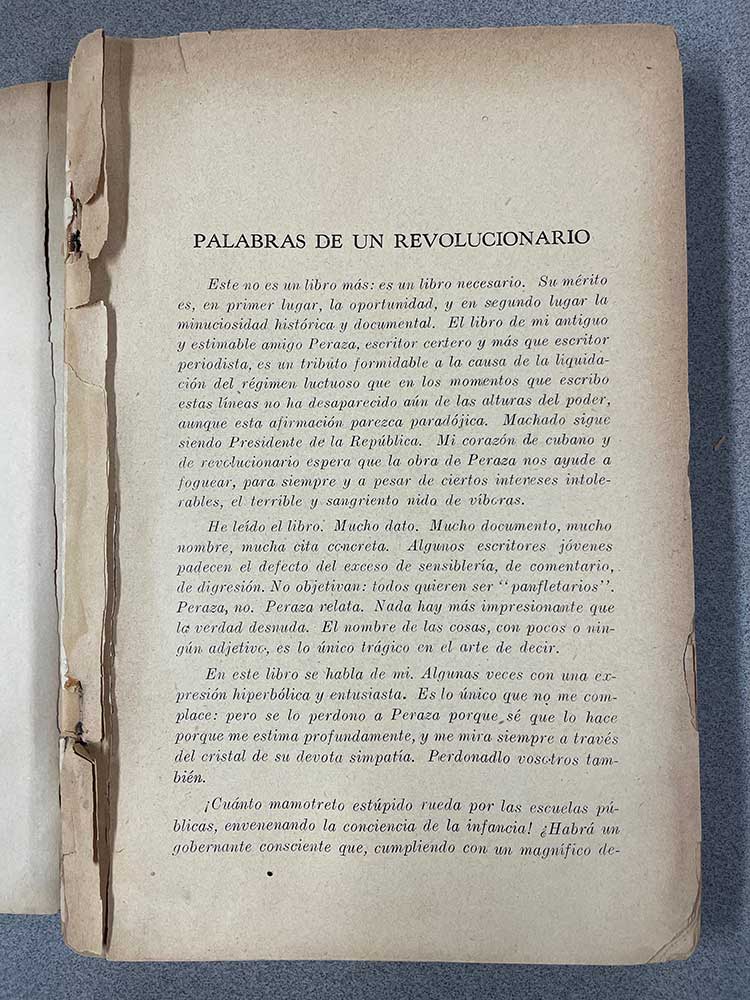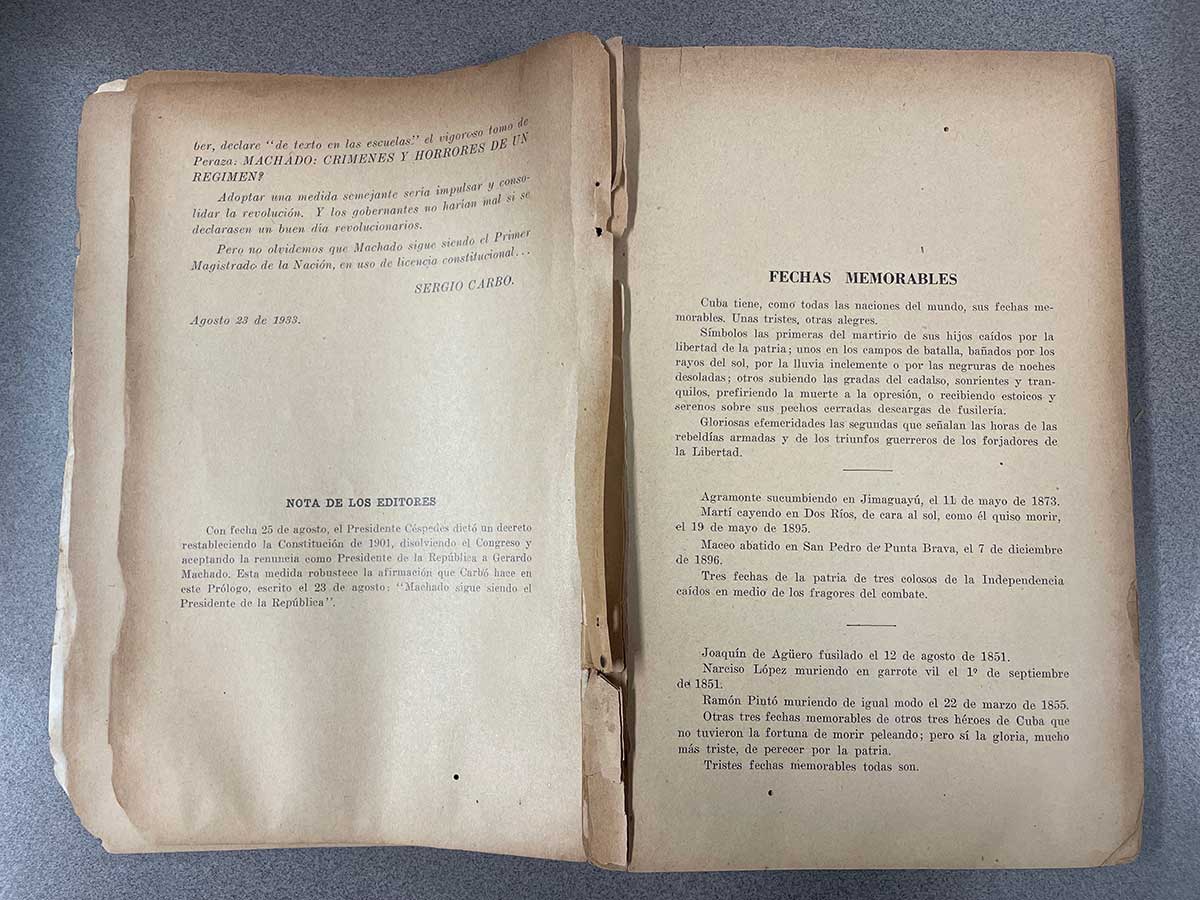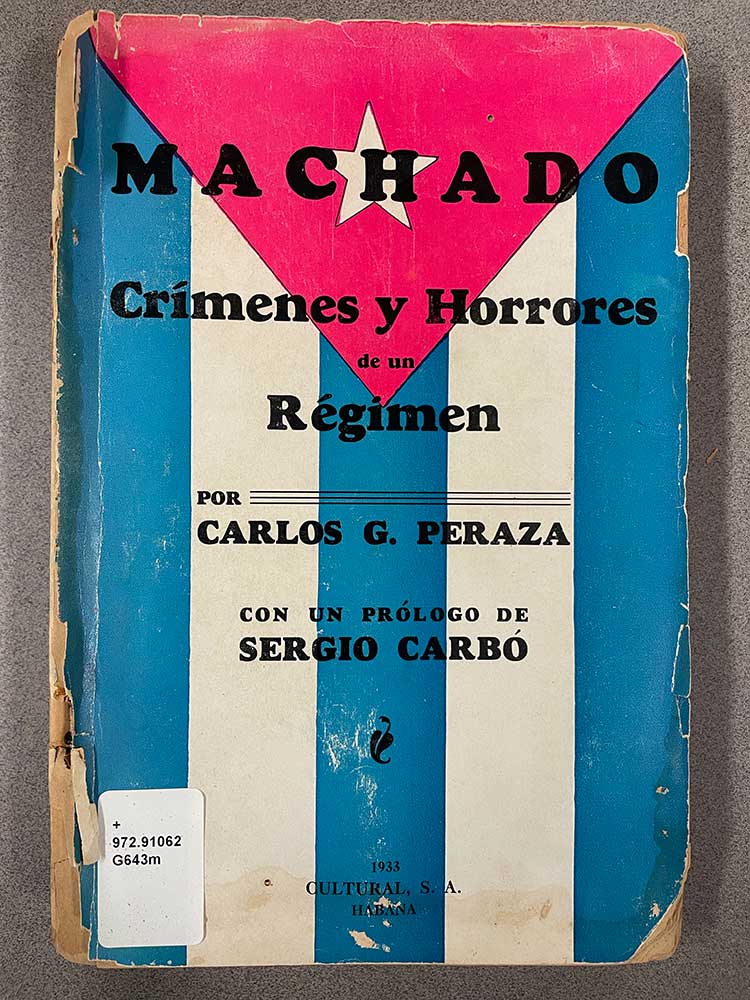Owner and director of the newspaper Prensa Libre, journalist Sergio Carbó completed this book, the first record of the atrocities perpetrated by President Gerardo Machado’s government against citizens, in late August 1933. It was published only two weeks after the dictator, his family and many military and police officials fled Cuba for sanctuary in Miami. Although in 1925 Machado had campaigned as a nationalist who would defend workers and uproot the monopoly control US companies exercised over the Cuban economy, he instantly betrayed every promise he made upon taking office. After 1928, however, things took a turn for the worse. Along with massive increases in graft and policies that expanded US investments rather than reduced them, Machado announced that he would arbitrarily “extend” his tenure as president along with that of all congressmen. The decision ignited an unstoppable conflagration of protests, strikes and outrage from all sectors of Cuban society. Heroically, Sergio Carbó documented every case he could of state terror, despite the efforts of Machado’s police to silence him and his journalists. In fact, so often did Machado’s henchmen assault, torture and kill unarmed opponents and critics like Carbó, that for the first time in Latin America, the word “disappear” came into common use as a way to refer victims. Indeed, stories about the activism and fate of los desaparecidos [the disappeared] occupy center stage in the pages of Machado: Crimes and Horrors of a Regime. The table of contents alone, shown here, serves as a list of political martyrs as well as a document collection of the manifestoes, public letters and denunciations of the many civilian revolutionaries responsible for galvanizing Cubans and provoking the fall of Machado. For little more than four months, a victorious, transitional government that included Sergio Carbó in its cabinet ruled the country and laid the foundations of a nationalist, non-communist, revolutionary democracy committed to reform. Then, with the key support of the United States, Fulgencio Batista staged a military coup in January 1934, ending Cuba’s chances for freedom for years. Lillian Guerra Collection, University of Florida Special Collections.

